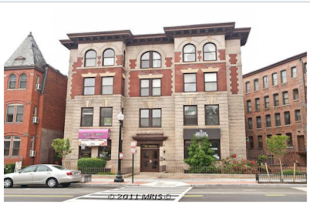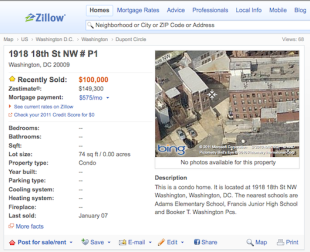-Yahoo!
HYANNIS PORT, Mass. (AP) — For the Kennedys, the family compound has long been a place to relax, to celebrate and to grieve. Members of America's most glamorous political dynasty played touch football on the lawn, walked the beach and sailed the sound. The cluster of white-clapboard homes on Cape Cod served as the summer White House when Jack was president.
It was there that the family retreated after his assassination. And it was there that Caroline held her wedding reception and Ted spent his final days.
Now, as the Kennedys gather for another wedding there, the family is divided over the future of the compound.
On Friday, Patrick Kennedy, a former eight-term congressman from Rhode Island and the son of the late Sen. Edward Kennedy, will marry New Jersey schoolteacher Amy Petitgout in a small, private ceremony presided over by Supreme Court Justice Stephen Breyer. At the same time, the Kennedys are split over what is to become of this Camelot-by-the sea.
Sen. Edward Kennedy's widow, Vicki Kennedy, and his three children plan to transfer the main house at the compound to the Edward M. Kennedy Institute for the United States Senate, perhaps for use as a scholarly retreat or a museum.
Some Kennedys have raised concerns about those plans, according to a family associate who spoke on condition of anonymity because he was not authorized to speak publicly. They are worried about protecting the privacy of family members who will continue to live on the grounds, maintaining the overall character of the compound and ensuring access to the beachfront property, the family associate said.
Family members are discussing the concerns in hopes of resolving the issue before the property changes hands, the family associate said.
A statement on Thursday from the Edward M. Kennedy Institute, of which Vicki Kennedy is a co-founder and trustee, said the compound's future use will be in line with what the senator wished for the property.
"Senator Kennedy understood the historical importance of the family home, as well as its cherished place in a small residential community," the statement said. "He addressed all of those issues in giving his immediate family the rights to the property for their lives and a remainder interest in the property to the Edward M. Kennedy Institute for the United States Senate.
"Any future plans for the family home will be consistent with the wishes of Senator Kennedy. However, no changes are imminent," it added.
Patrick Kennedy declined to comment.
Whatever becomes of it, the compound remains a link to the Kennedy legacy.
Here is where John F. Kennedy learned to sail and played football with his brothers. Just down the road is where he delivered his first speech after winning the White House. It was here, 12 years ago next week, that the Kennedy clan retreated to mourn the death of John F. Kennedy Jr. in a plane crash. And it is here where Edward Kennedy succumbed to brain cancer in 2009.
"This was their getaway," said Jessica Sylver, chief executive at the Hyannis Area Chamber of Commerce, which operates the John F. Kennedy Hyannis Museum. "This was where the family came to be together, to escape."
Just as the Kennedys made a mark on America, the Cape made its mark on them.
"I always come back to the Cape and walk on the beach when I have a tough decision to make," JFK once said. "The Cape is the one place I can think, and be alone."
The homes that make up the Kennedy compound are not open to the public. According to the National Park Service, the main house contains nearly two-dozen rooms, including seven bedrooms for residents and guests and four rooms for servants. The basement holds a movie theater and sauna. The grounds feature an enclosed pool, a tennis court and a four-car garage.
The Kennedys' presence here began in 1926 when Joseph Kennedy Sr. and his wife, Rose, rented a summer cottage with sweeping ocean views. A few years later, the Kennedy patriarch purchased the property and expanded it to suit his growing family. Twenty years after that, JFK and his brother Robert expanded the family footprint when they bought homes nearby. Edward Kennedy made the main house his home for decades.
Ethel Kennedy, Robert's widow, still keeps a house next to the main residence.
The dense collection of white clapboard houses blends seamlessly into the wealthy neighborhood.
Signs remind visitors that the compound is private, hidden largely away by fences, driveways and the green sea of Nantucket Sound. Still, sightseers try their best to spy a glimpse.
"I've heard about it all my life," said Sarah Buck of Mechanicsville, Va., who stopped by the compound Thursday with three friends. Buck, 29, was on the Cape for a friends' wedding and wanted to see what she could of the Kennedy home. "They're an American institution."
The best views of the compound are from the sea. And Hyannis Port boat operators are happy to oblige.
"We used to carry 1,500 people a day or more in 60s and '70s," said Murray Scudder, whose father helped found a tour boat business after JFK was elected president. "Now it's a couple of hundred. It doesn't have the cachet it once did."
Still, to the many Americans who lived through the Kennedy era, the compound and Hyannis are a place where ghosts whisper in the salt spray.
Photos in the Hyannis museum show Kennedy arriving in a Marine helicopter; welcoming the Canadian prime minister to his family's home; being interviewed on the manicured lawn by Walter Cronkite; learning that his brother Ted had won a Senate seat; sailing with Jackie just after their marriage; playing with John Jr.
"It's still emotional to me," said Marcia Diamant, visiting Hyannis from New York. Standing outside the Kennedy museum, she fought back tears as she remembered JFK's 1963 assassination. "I was in high school. I was on a bus, and they announced it. No one could believe it. It's something I'll never forget."
appraisal services, appraisal management company, coester appraisal, fha minimum property standards, best appraisal management company, reverse mortgage appraisal companies, property tax appeal






